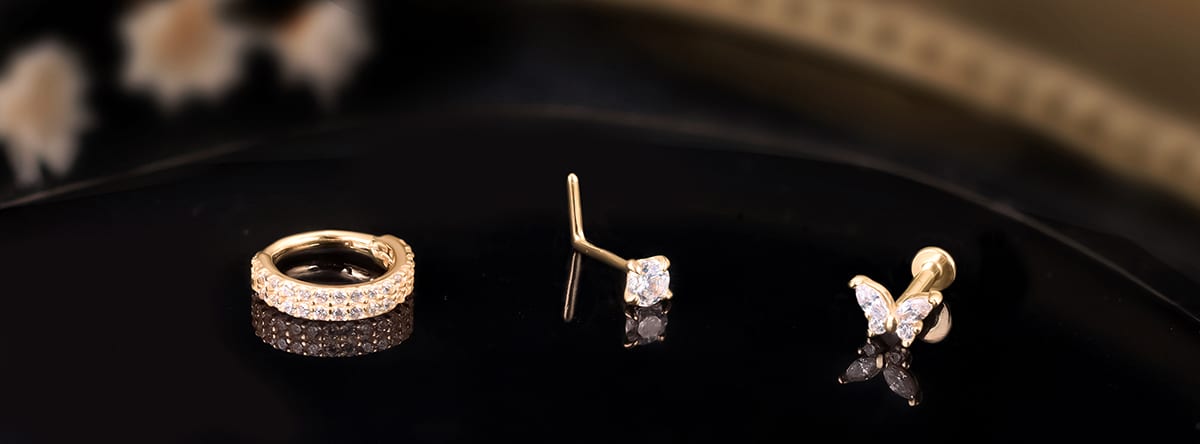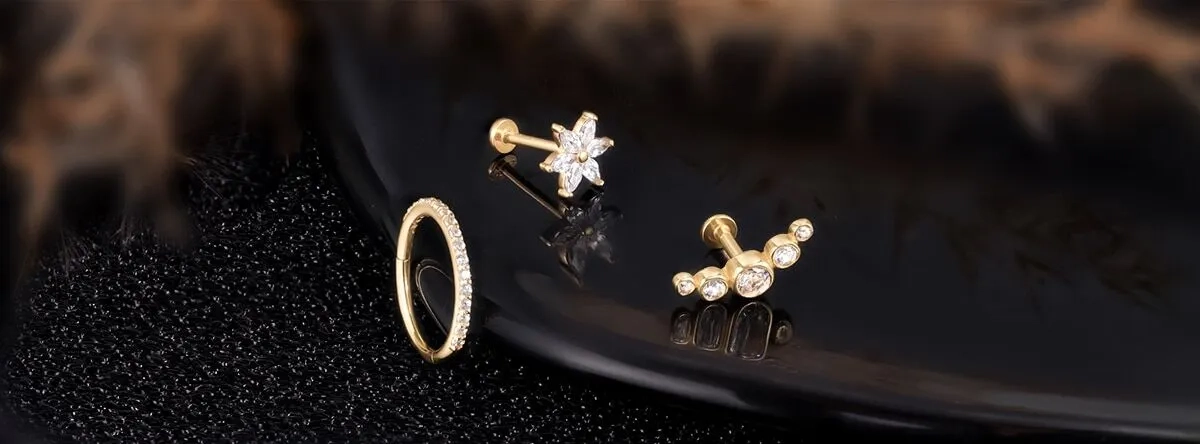Email:wholesale@goldpiercingfactory.com WhatsApp:+14086905740


Medusa Piercing Meets Eco-Fashion , it can be traced back to when avant-garde style tackles tire wast, a runway model struts down the catwalk, her Medusa piercing glinting under the lights while her shoes, crafted from recycled tires, make a quiet environmental statement. This is today’s Avant-garde fashion scene, where bold self-expression walks hand-in-hand with ecological responsibility. As we’ll see, the same creative spirit that gives us striking body art is now being channeled to solve one of our toughest waste problems.
Step into the captivating realm of Medusa piercings. Let’s talk numbers first. The world produces enough discarded tires each year to circle the equator nearly twice. These black doughnuts of doom pile up in landfills, stubbornly refusing to disappear. Unlike banana peels or paper bags that decompose, tires stick around for centuries, becoming permanent fixtures in our environment.
What makes tires such troublemakers? Their very design works against nature. Manufacturers mix synthetic rubber with steel belts and chemical cocktails to create products that withstand years of road abuse. This durability becomes a curse when tires reach the dump. In hot climates, abandoned tire piles become mosquito condominiums, while everywhere they leach chemicals as they slowly break down.
Remember those tire fires you sometimes see on the news? They’re not your average bonfire. Once ignited, tire piles burn for weeks, spewing thick black smoke loaded with cancer-causing chemicals. Firefighters often just let them burn out because putting them out is nearly impossible.
But the slow poisoning is worse. As tires bake in the sun year after year, they shed microplastics and toxic compounds that wash into streams during rainstorms. Scientists have found these tire chemicals in fish brains, affecting their ability to survive. It’s like the tires keep on killing long after they’ve left the road.
The environmental impacts of improper tire disposal manifest in multiple alarming ways. Most visually dramatic are the notoriously difficult-to-extinguish tire fires that can burn for weeks once ignited. These industrial-scale infernos generate thick, toxic smoke plumes containing dangerous compounds like benzene and polycyclic aromatic hydrocarbons that linger in the atmosphere for miles, creating respiratory hazards across entire communities.
More insidious is the gradual environmental contamination occurring out of public view. As decades pass, constant exposure to sunlight and weather slowly breaks down tire materials, releasing a steady stream of microplastic particles and chemical residues. These pollutants silently infiltrate groundwater systems during rainstorms, eventually reaching aquatic environments where they accumulate in the food chain with consequences scientists are only beginning to understand.

Here’s where things get interesting. Some Avant-garde designers looked at those waste tires and saw… handbags? Belts? Even jewelry? It turns out tire rubber makes fantastic fashion material when processed correctly. The texture gives shoes incredible grip, while the durability means accessories that last for years.
Several sneaker brands now brag about their “upcycled tire soles” as a selling point. And why not? Each pair keeps several pounds of rubber out of landfills. High-end designers have taken it further, creating sculptural pieces that make bold statements about sustainability.
If it’s so great, why isn’t every fashion label using tire rubber? Three big reasons: First, cleaning and processing the rubber costs more than using virgin materials. Second, some consumers still think “recycled” means “low quality.” Third, the supply chain needs work – it’s hard to get consistent, clean rubber in large quantities.
Pyrolysis sounds complicated, but think of it as a pressure cooker for tires. By heating them without oxygen, we can break tires down into useful stuff – fuel oils, gases, and carbon powder. The oils can run machinery, the gases power the process itself, and the carbon strengthens concrete. It’s like alchemy for the eco-age.
Building a pyrolysis plant costs millions, and the technology works best with consistent tire types. Some outputs need extra cleaning before use. Regulations vary wildly, too – what flies in one country gets banned in another. Still, it’s the most promising solution we’ve got for mountains of waste tires.

Here are many suggestion of diving into the world of Medusa Piercing. Every time you choose shoes with recycled soles or a tire-rubber belt, you’re telling companies “This matters.” Brands follow the money, so your purchases shape what gets made tomorrow. Look for certifications like GRS to spot truly sustainable products.
Snap pics of your eco-chic tire rubber accessories and tag the brands. Chat up store clerks about sustainable options. The more we normalize recycled fashion, the faster change will come. Remember, today’s Avant-garde idea is tomorrow’s mainstream trend.
Education remains crucial in shifting consumer behavior and market demand. Compelling social media content highlighting fashion’s environmental impact can significantly influence purchasing decisions, particularly among younger demographics increasingly concerned about sustainability. Interactive workshops demonstrating creative material reuse help make ecological concepts tangible and inspiring for broader audiences.
Grassroots activism contributes to systemic change when consumers engage with policymakers through petitions, public comments, and local representative meetings. This collective pressure can accelerate the development of regulations that encourage sustainable practices while discouraging wasteful ones, particularly when coordinated with industry sustainability initiatives.
FAQs:
Q1: What gets made from old tires?
A: Beyond shoes, designers create everything from tough-as-nails wallets to chunky statement necklaces. The rubber’s durability makes it perfect for items that take daily abuse.
Q2: Is burning tires for energy a good idea?
A: Regular incineration is terrible – it’s chemical warfare on the atmosphere. Pyrolysis is different because it traps and controls emissions while making useful byproducts.
Q3: Why does recycled tire rubber cost more?Why pay more for recycled rubber?
A: For the same reason you invest in a quality Medusa piercing: ethical craftsmanship lasts. Think about all the steps: collecting, cleaning, processing, and quality testing. Virgin rubber comes straight from the factory, while recycled rubber needs a whole second life first.
Q4: How can I tell if a brand’s eco-claims are real?
A: Check for specific percentages (like “60% recycled content”) rather than vague terms like “eco-friendly.” Third-party certifications are the gold standard proof.